‘I hope others can have the same choice’ - 5 women share what the assisted dying vote means to them
Five women reveal what a change in the assisted dying law would mean to them as MPs vote on the complex issue
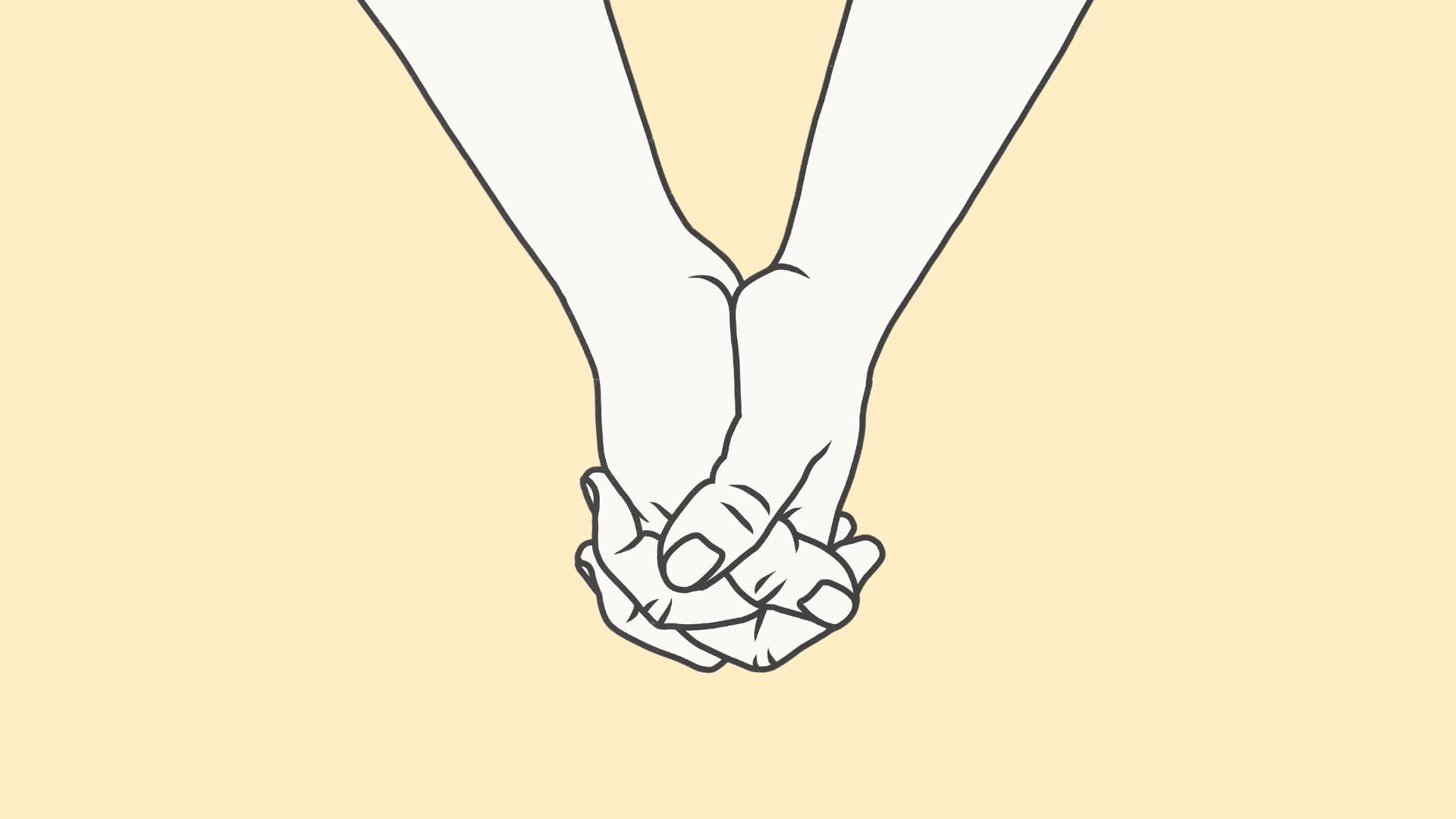

Grace Walsh
Friday, November 29 brings difficult decisions for many MPs as a historic vote on assisted dying takes place in the House of Commons. It remains one of the most divisive issues of our time, with a hundred MPs expected to register their interest to speak during the five-hour debate, before deciding whether proposed changes should be brought into law.
At present, assisted dying - also known as assisted suicide and defined as intentionally helping another person end their life - is illegal in the UK. However, the Terminally Ill Adults (End of Life) Bill would give someone who is expected to die within six months the right to choose to end their own life in England and Wales. Two independent doctors and a judge would be required to decide whether certain criteria are satisfied.
On one end of the spectrum, some believe the legislation is a step in the right direction, while others say it doesn’t go far enough. On the other end, some are hesitant about whether it should be permitted and there have been calls to improve existing care services. Here, five women share their thoughts with woman&home on this complex, sensitive, and incredibly human topic.
"My husband wanted to kill cancer, he didn’t want cancer to kill him"
Sarah Tuckley, based in Derby
I met my husband Dan at work in 2002 when he joined after serving in the army. We got together at one of the company’s social gatherings the following year and he soon moved in. We spent most days together after that, getting married in Las Vegas in 2012 and really enjoying life. We were a team - us against the world.
In 2019, we bought an apartment in Spain, where we were lucky enough to spend half of the pandemic. We were in the process of applying for a Digital Nomad Visa in 2022 when everything changed. In mid-August, Dan thought he’d pulled something while lifting weights and - convinced he was fine as an otherwise healthy 46-year-old - went to hospital as a precaution.
This is when things started going from bad to worse. At first, doctors thought he was suffering from a ‘very treatable’ lymphoma. However, a few weeks later, he was officially diagnosed with metastatic renal medullary carcinoma - a very rare and aggressive form of cancer.
We were told that any treatment had a less than one per cent chance of working and could actually risk shortening the limited time he had left. Indeed, it was clear the end was near - he had already started twitching in his sleep and cheyne breathing.
Sign up for the woman&home newsletter
Sign up to our free daily email for the latest royal and entertainment news, interesting opinion, expert advice on styling and beauty trends, and no-nonsense guides to the health and wellness questions you want answered.
Dan was discharged from the hospital and into palliative care around the same time that Queen Elizabeth passed away. By this point, he had extensively researched and ultimately decided to end his life on his terms at the Pegasos clinic in Switzerland. He wanted to kill cancer, he didn’t want cancer to kill him.
It wasn’t that he couldn’t handle the pain - he’s the strongest person I know - it was about having a sense of control. Something that he’d lost up to that point when it felt like we were both being swept away.
I remember the day Dan told his three siblings on our terrace. He estimated he had a week of being ‘him’, a week of being ‘him’ but bedridden, and a week where he wouldn't have a clue what was going on. Outside of the five of us and our partners, not a single person knew of his plans.
Within days, we were flying on a private jet he had booked to Switzerland. We stayed in hotels he'd booked. It all had to be in his name because of the potential legal implications after the fact. On that plane, in survival mode, it felt like an out-of-body experience - almost like I was watching it happen.
Dan kept his sense of humour right to the very end. He had Frank Sinatra’s 'My Way' playing in the background and wore his favourite tuxedo suit, joking with his siblings that they should remember him as being ‘stylish’. He was cremated in Switzerland and his funeral was held at the end of October back in the UK.
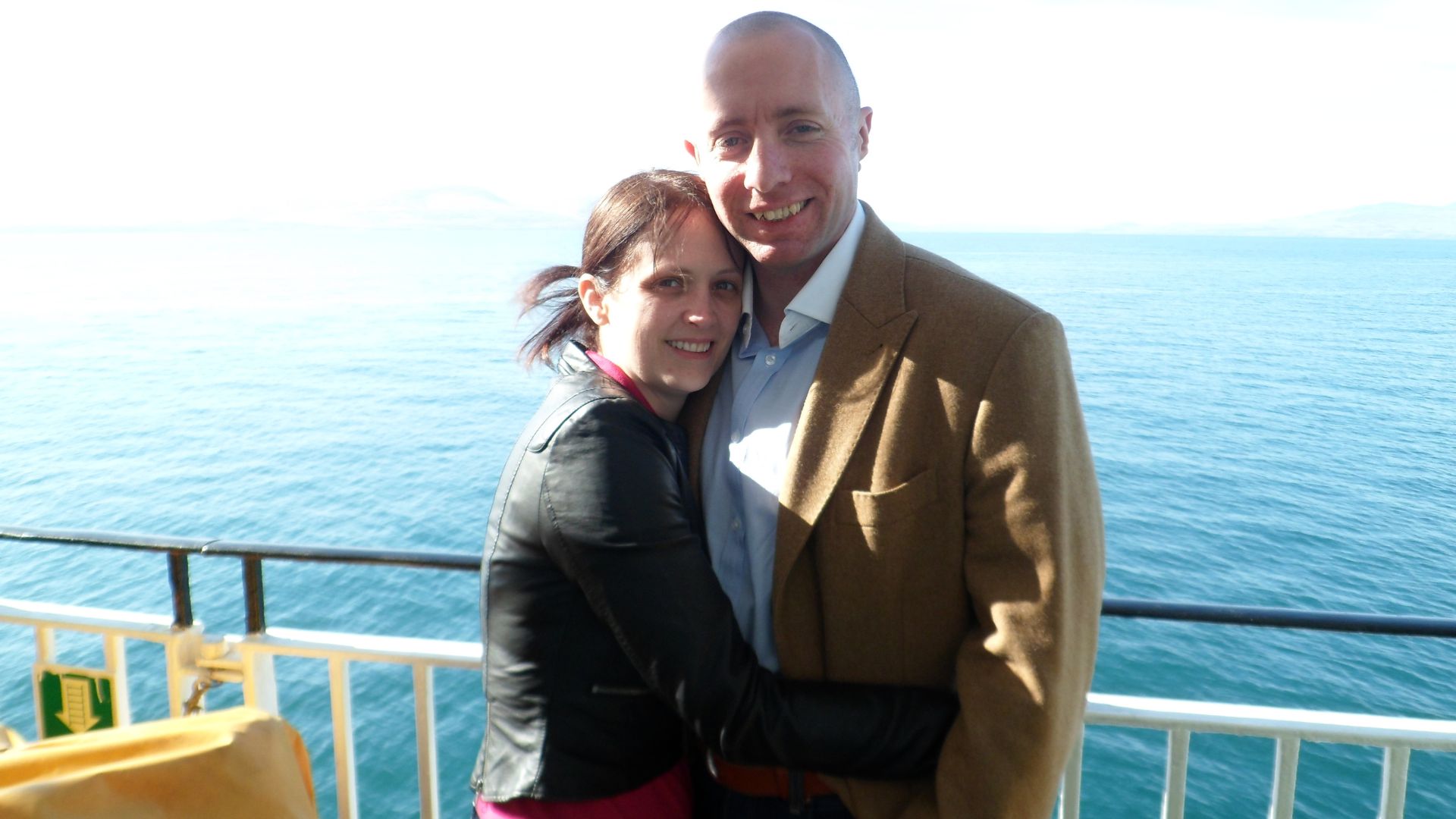
Dan was diagnosed with metastatic renal medullary carcinoma in September 2022.
Just over two years later and I’m still processing my grief and how fast it all was, but I know exactly how I feel about the debate on assisted dying: that people should have autonomy. I know in my heart that Dan would be the same.
I believe it’s unforgivable he fought for this country and wasn’t allowed to die here how he wished. What’s more, I feel his final days could have been different had he not needed to be well enough to travel abroad.
Not only did he have to spend time exploring the logistics, but he also had the added stress of ensuring his loved ones didn’t face prosecution. He missed out on saying goodbye to many family and friends - people he’d served with - because it all moved so quickly.
Upon returning to the UK, I visited people to tell them in person - and phoned those I couldn’t - to read out a note he had composed to loved ones. At his funeral, I told the congregation how Dan was my ‘strength and stay’, in the words of the late Queen about Prince Philip.
A few months later, two police officers knocked at my door. The three siblings and I were investigated. We suspect one of the palliative nurses had reported us to a doctor. While they didn’t proceed, we had been made to feel like criminals.
As Dan’s note read: "You should know that I went out on my own terms, and it was my own decision, one of the only things I’ve had control over in the past weeks and I was very determined to go out this way." I hope others will have this choice, too, but on home soil.
"After losing my dad, I believe that life has its own course"
Emily Gardiner, based in Rutland
My father was diagnosed with motor neurone disease (MND) in 2017 when I was in my late 20s. It turned my family’s world upside down. This cruel condition gradually took away his ability to move, speak and even eat. Yet, despite his body failing him, my father kept his sense and positive outlook.
As the illness progressed, he lost control first over his hands and arms, then his legs, and eventually his whole body. His voice disappeared, and he had to use eye-gaze technology to communicate. He could still smile and laugh, but in the end, he could no longer eat or drink.
One day, he asked: "Is there long left?" It was a simple, heartbreaking question that revealed just how much agony he was in. He was ready to go, but there was no way to ease his suffering.
This was when the idea of assisted dying crossed my mind, but it was simply not an option. My father was a devout Christian and, for him, life and death were in God’s hands. But the thought of him suffering in silence, without the ability to choose when to end his pain, stayed with me for a long time.
As he approached the end of his life, the doctors said: "It’s time to say goodbye now." The room was filled with tears - not just ours, but even from the nurses and doctors who had cared for him so lovingly.
It was an unbearably sad moment, but also one of acceptance. We gathered around him, holding his hand and telling him: "It’s okay, Dad. You can let go now." And with that, his body did. His spirit was free.
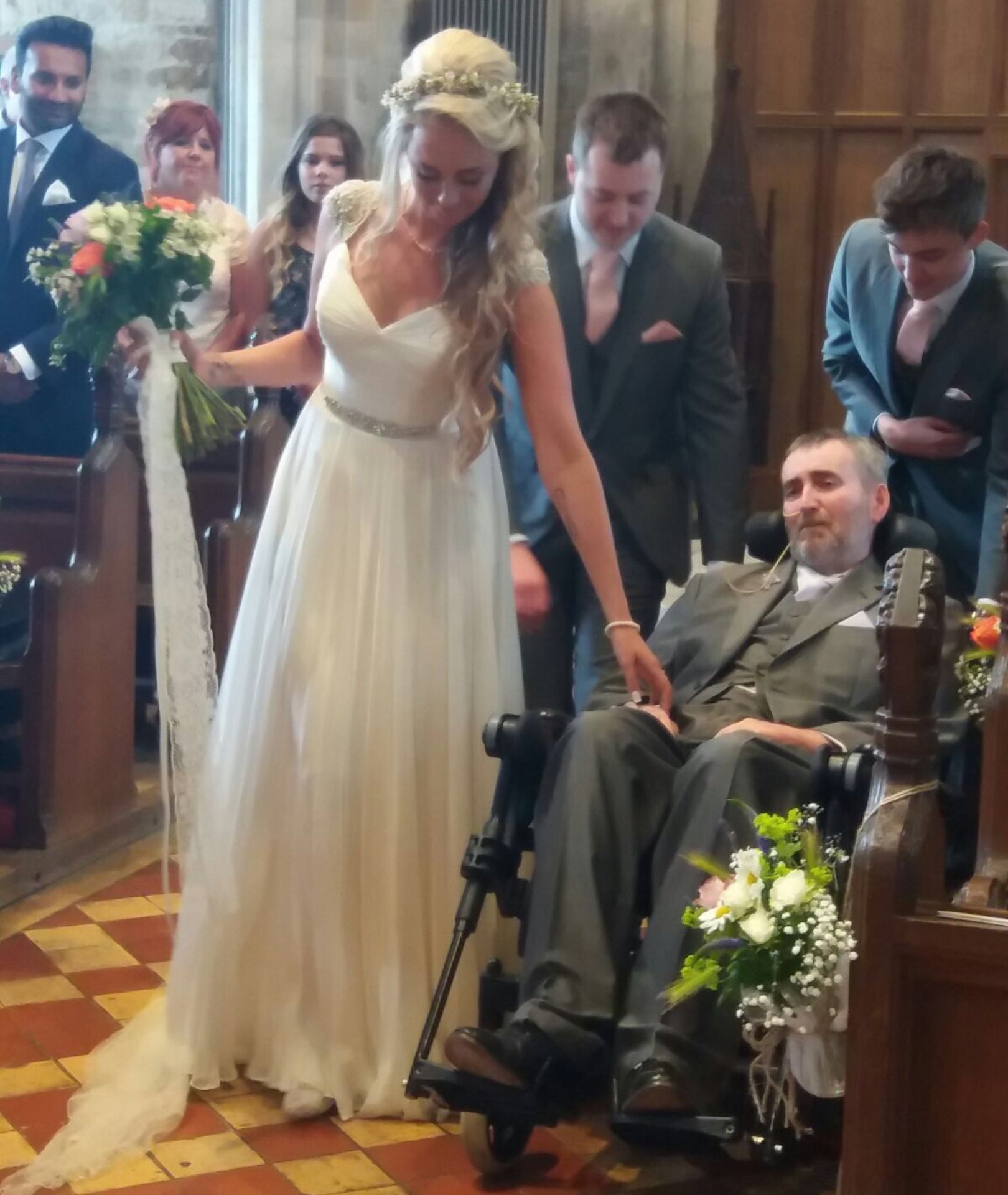
Emily's dad was diagnosed with motor neurone disease (MND) in 2017.
I know that assisted dying is a deeply personal issue, and I don’t judge others who choose it. But, for me, while processing my grief, I now believe that life has its course and that, ultimately, my father knew when it was time to go.
As the UK considers the assisted dying vote, I hope we continue to consider the complexities of this decision, honouring both the choice of the individual and the importance of offering hope, comfort and treatment for those who are suffering.
Indeed, there has been promising news recently about a drug called Tofersen for MND. It has been shown to have the potential to slow, or even halt, the progression of the disease in patients with the SOD1 genetic variant - a rare form of the condition, affecting around 60 to 100 people in the UK.
Although the NHS has yet to make this drug widely available, it has shown real promise in clinical trials. The fact that there is progress in treating MND gives me hope that we can find ways to prolong life and improve the quality of life for those suffering from many terminal illnesses.
Emily Gardiner is the founder of Free To Be Creative.
"The level of care currently available drives the idea that disability can be a burden"
Amelia Peckham, based in Harrogate
I was involved in a serious quad bike accident when I was 19, which caused a spinal injury that left me permanently partially paralysed from my waist down. I was incredibly lucky to regain some neurological function, enough to be able to walk with crutches.
After my accident, everything felt relentlessly bleak - having an injury like mine meant both my Mum and I were thrown into a very dark place. Would I live on my own ever again? Would I ever get married and have children?
I also soon discovered that the disabled community - 16 million in the UK - aren’t properly supported. The lack of care available drives the idea that disability can be a burden, and it can feel like we are constantly fighting to achieve a level playing field with our non-disabled counterparts.
Nothing is guaranteed for our community. Doctor's appointments are cancelled without notice, benefit reviews are randomly enforced, blue badges are reassessed, and job parameters are changed. It can feel like there's a constant ‘guilty until proven innocent’ approach.
I believe that anyone living with a terminal illness should have the ‘right to die’ as a choice - but only as a last resort where all other options have been exhausted. Particularly in relation to people with disabilities, there has to be an improvement in the level of care and healthcare provision in order for this to be a safe and responsible decision.
There are a large number of people with disabilities who are experiencing a more negative ‘normal’ right now and could be vulnerable if the bill is passed without an additional review of the support we as a community currently receive. Our quality of life could - and should - be dramatically better.
Amelia Peckham is the co-founder of Cool Crutches.
"I hate that our laws denied her the ability to die peacefully at home"
Kristie Scott, a professional estate planner, based in Weymouth
My work can be extremely difficult, especially as I work with a lot of cancer patients, but I wouldn't change it for the world. I absolutely love what I do and the fact that I am helping people organise their lives and their deaths - it not only puts their minds at rest but protects the loved ones they will leave behind.
I know it sounds cliché, but the amazing people I've had the privilege of working with have taught me to try to live every day to the fullest and enjoy even the simplest things in life - like a good cup of tea. These include Paola Marra, who approached me for support before travelling to Dignitas last March - a decision that made headlines.
Paola was the most amazing woman and had a wicked sense of humour. She was extremely unique and the first person who had ever spoken about assisted dying to me. When we first discussed her death plan, she was already in the process of applying to Dignitas, a hugely laborious and costly process. She had been unwell with cancer for a very long time, endured a lot of pain, and wanted to exit this earth in a dignified manner of her choosing.
The video released of Paola the day after she died has helped open up the conversation. She shouldn't have had to 'be brave' or leave family and friends early. She should have died peacefully at home in the UK surrounded by the people who loved her. I hate that our laws denied her that.
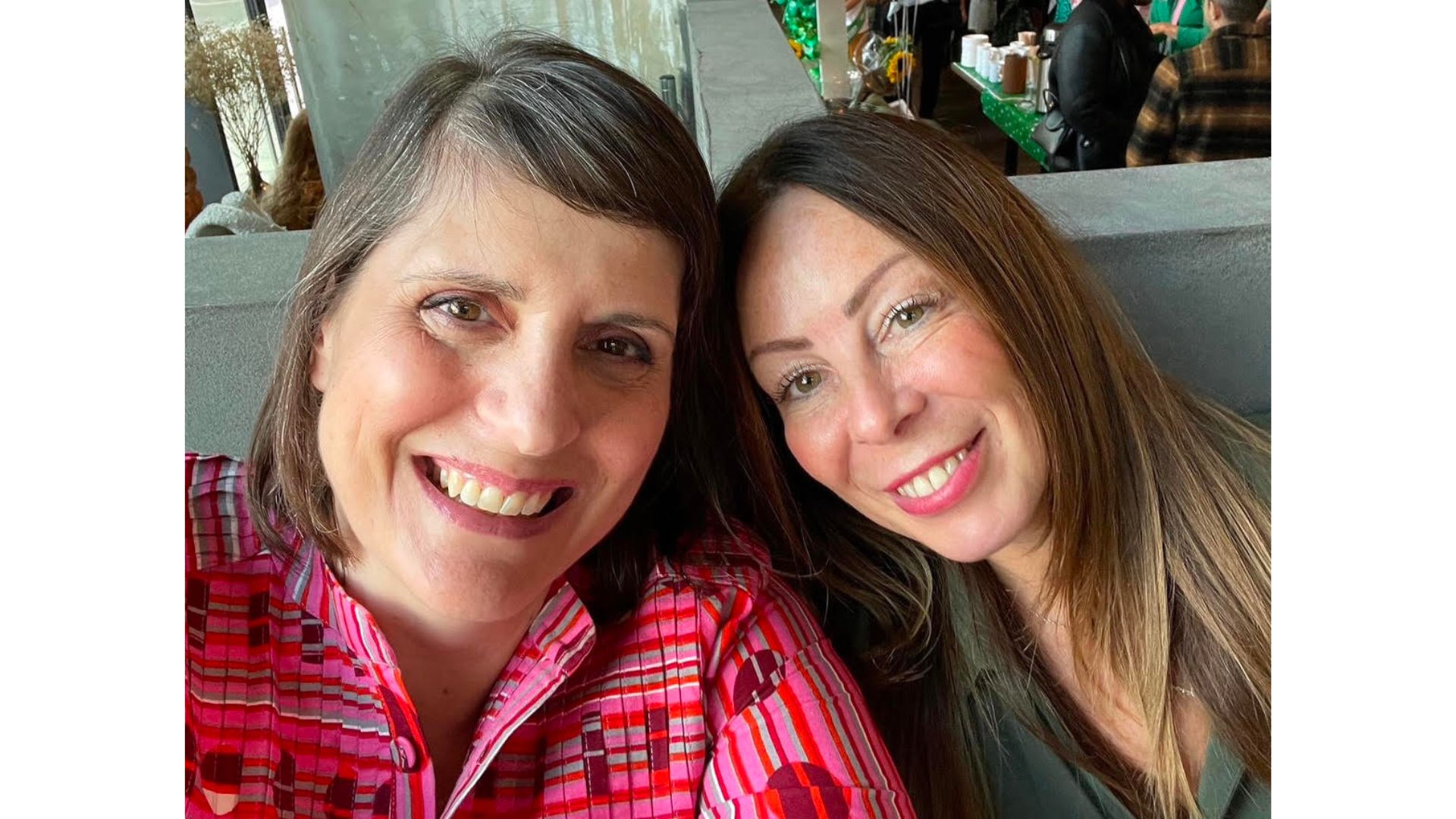
Kristie Scott (right) with Paola Marra (left)
I have a lot of clients who talk about assisted dying. Many of them simply want the ability to make their own decision if necessary. They are worried about their friends and families watching them suffer, the pain they might endure and the undignified aspect of dying so helplessly. I completely understand their fears.
Being able to have open conversations about these topics was one of my aims when I created The Death Planner. I was a funeral director during the pandemic when I noticed that people had no idea what their loved ones' wishes were about death - like burial, cremation, or guardianship - or the legal documents in place, which was adding to their grief. I purposely used the word ‘death’ in the name to try and take the fear and taboo out of the subject.
With safeguarding rules in place, I cannot help but think that for terminally ill people, with only six months left to live, this choice should be theirs. The time that these people have left should be spent with loved ones, free of pain, not fearing an agonising death. It is time for change.
"Financial consequences for families have been overlooked"
Alexa Payet, partner at Michelmores, based in London
I am part of a team helping families with the complex laws around inheritance when someone dies by assisted suicide. We are on hand to guide and support them through the crucial steps required in such cases. I feel privileged to be trusted and relied upon.
The debate surrounding assisted dying in the UK has focused on moral and ethical issues and the risk of prosecution for family members. Unfortunately, this has meant that the potentially devastating financial consequences for families have been overlooked.
Currently, someone who chooses to die by assisted suicide may not be able to pass their property and wealth on to loved ones. This is known as the rule of forfeiture, which prevents someone benefiting from the unlawful death of another.
It can mean that someone who the court views as having assisted in the death of a loved one – which could include travelling with them to a Swiss clinic – may be left with nothing, including shares in jointly owned property, pensions, and insurance policies.
As things stand, the default position is that these families have to apply to the Court for relief from the forfeiture rule. It's a costly process that requires them to relive the trauma of losing a loved one in extremely painful circumstances.
Since my first instruction in 2017, I have helped an increasing number of families as awareness has grown among the legal profession and the public about the financial consequences of assisted dying.
If the Bill being debated this week is passed into law, it will help some families - but many will still be in the same situation. Its scope is narrow, limiting assisted dying to people who are terminally ill.
This would exclude a large number of people, such as those with incurable and debilitating conditions, and their families could still be left in a very vulnerable position financially if they assist.
Clients often express their frustration that they are required to make an application for relief from the forfeiture rule following such a traumatic event. Unfortunately, as the law stands, there is no alternative.
Families are facing something that no one wants to face. They have to make incredibly difficult decisions and the complex legal and financial situation makes that much harder.
What is the Terminally Ill Adults (End of Life) Bill?
Currently, UK laws make assisted dying illegal. The Terminally Ill Adults (End of Life) Bill is proposed legislation that, if approved by MPs and peers, will change the law and give terminally ill people in England and Wales the right to choose to end their life.
The bill says anyone who wants to end their life has to:
- Be over 18 years old and live in England and Wales
- Have been registered with a GP for at least 12 months
- Have the mental capacity to make the choice and be deemed to have expressed a clear, settled and informed wish, free from coercion or pressure
- Be expected to die within six months
- Make two separate declarations, witness and signed, about their wish to die
- Satisfy two independent doctors that they are eligible - with at least seven days between each assessment.
This bill only concerns those living in England and Wales, with a separate one under discussion in Scotland.
Where is assisted dying legal currently?
While MPs debate changes to the law in England and Wales, several countries already have one in place to allow for assisted dying. These differ between countries and, in the United States' case, between states.
In all cases, these laws only allow assisted dying under certain circumstances, with the most common being only in the case of terminal illness or unbearable suffering.
According to Dignity in Dying, countries with a law that allows for assisted dying in some capacity are:
- Switzerland
- Canada
- Australia
- New Zealand
- Oregon, USA
- Washington, USA
- California, USA
- The Netherlands
- Belgium
- Luxembourg

Lauren is a freelance writer and editor with a decade of print and digital journalism experience. While she specialises in covering health and wellness topics - ranging from nutrition and fitness, to women’s health conditions and mental wellbeing - she has written across a diverse range of lifestyle topics, including fashion, beauty, interiors and travel.
In addition to writing for Woman & Home and sister title Homes & Gardens, Lauren's work has also been published by Women’s Health, The Times, Daily Telegraph, Elle, Cosmopolitan, The Guardian, Marie Claire, Body + Soul, Stylist, Glamour, Grazia, Red, Dazed Digital, Yahoo Life, The Sun’s Fabulous, Get The Gloss and Hello! among others.
- Grace WalshHealth Channel Editor
-
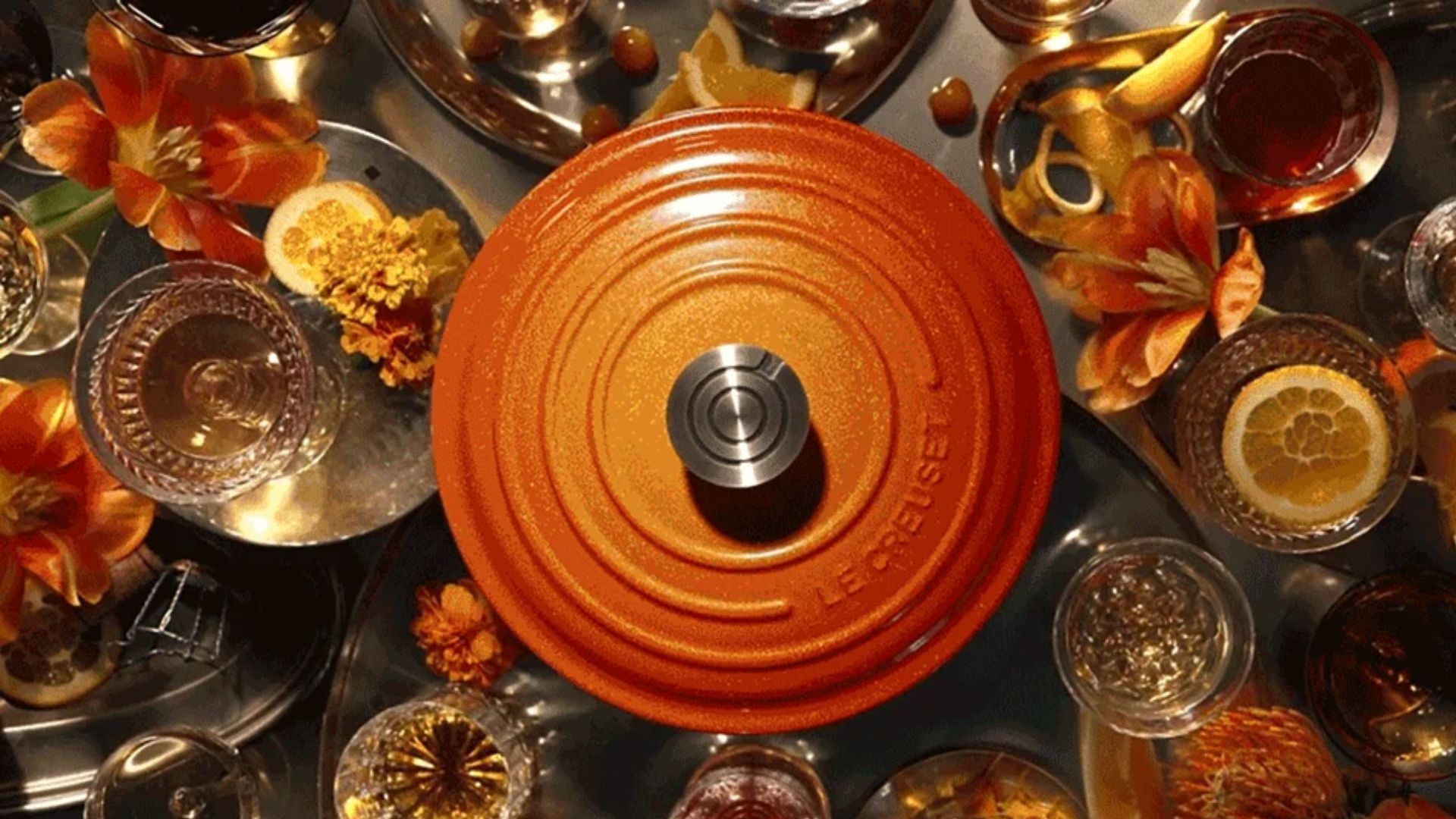 Le Creuset has taken the gold standard literally — their 100 year launch features real gold and an iconic designer collaboration
Le Creuset has taken the gold standard literally — their 100 year launch features real gold and an iconic designer collaborationLe Creuset have turned 100 years old and to celebrate they have launched a new colour — Flamme Dorée — as well as a coffee table book with designers Assouline
By Laura Honey Published
-
 This chic, Brazillian perfume brand is our beauty team's secret to smelling expensive and unique
This chic, Brazillian perfume brand is our beauty team's secret to smelling expensive and uniqueFrom salty accords to modern twists on tuberose, there's a Granado perfume for every preference - but these 9 blends have our heart...
By Naomi Jamieson Published